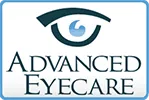
Sometimes your eyes don’t make enough tears or the tears evaporate too fast because they don’t have the right amount of compounds in them. This is called dry eye. Up to 5% of Americans complain of some form of dry eye. Individuals who wear contact lenses or have undergone LASIK or other types of refractive surgery commonly complain of dry eye. The condition is more common in women and is more common and severe in older persons.
Dry eye may occur by itself, or the surface of the eye may be inflamed at the same time. This condition can make it harder for you to carry out certain activities such as reading for long periods or looking at a computer screen. You may also be less comfortable in dry environments.
Mild cases of dry eye may go away on their own. However, if dry eye persists and goes untreated, it can cause ulcers or scars on the surface of the eye (cornea). This can be painful and may lead to some vision loss. Permanent loss of vision from dry eye, though, is uncommon.
Symptoms of Dry Eye
Dry eye can lead to different symptoms, including:
- Being unable to read, work on the computer or do other eye-intensive activities for long periods
- Blurry vision
- Burning or stinging of the eye
- Discharge from the eye
- Discomfort while wearing contact lenses
- Eye fatigue
- Feeling like there is something in your eye
- Eyelids that feel heavy
- Not being able to cry, even when upset emotionally
- Periods of excess tears followed by very dry eyes
- Redness or pain in the eye
If these symptoms persist or grow worse, contact your eye doctor. He or she will identify the underlying cause of dry eye and offer treatment options.
Causes of Dry Eye
Many factors can lead to dry eye, both temporary and ongoing (chronic), including:
- Allergies
- Chemical and heat burns of the membrane that covers the eye and inside of the eyelids (conjunctiva)
- Chronic inflammation of the conjunctiva or the lacrimal gland
- Cosmetic eyelid surgery
- Diseases of the skin on or around the eyelids or the glands in the eyelids
- Exposure to irritants, such as chemical fumes, tobacco smoke or drafts from heating or air conditioning
- Hormone replacement therapy
- Immune system disorders such as lupus, Sjögren’s syndrome and rheumatoid arthritis
- Long-term contact lens wear
- Medications such as antidepressants, antihistamines, birth control pills, certain blood pressure medicines, nasal decongestants, Parkinson’s medications and tranquilizers
- Not blinking enough while looking at electronic screens
- Pregnancy
- Refractive surgery, such as LASIK
- Thyroid disease
- Vitamin deficiency or excess
Treatments for Dry Eye
Several treatments are available to relieve symptoms of dry eye, including:
- Anti-inflammatory medication such as cyclosporine or short-term use of corticosteroid eye drops
- Dietary changes or supplements, such as adding omega-3 fatty acids to your diet
- Managing the underlying condition with medication or other treatments
- Plugging the tear ducts to keep the tears from flowing away, either temporarily or permanently
- Switching medications that may be causing dry eye
- Wearing contact lenses less frequently or switching to another type of lens
If you have dry eye, you may also be able to take steps to reduce the symptoms, such as by:
- Avoiding dry conditions
- Filtering the air in your house with an air cleaner
- Keeping the moisture in your house at a comfortable level with a humidifier
- Resting your eyes periodically during vision-intensive activities such as computer use or reading
- Using over-the-counter artificial tears, gels or ointments
- Wearing close-fitting glasses or sunglasses to prevent evaporation of tears
For more information about treating dry eye or about dry eye in general, contact us today.
